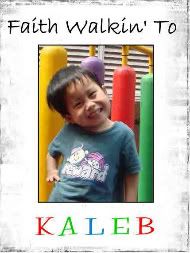What Are You Doing, Lord?
"How long, O Lord, must I call for help, but you do not listen? Or cry out to you, `Violence!' but you do not save? Why do you make me look at injustice? Why do you tolerate wrong?" (Habakkuk 1:2-3).
The popularity of his name may have died out, but Habakkuk's question lives on: "What are you doing, Lord? Don't you see what is happening all around me?" When I look back on my own history, I am grateful for the faithfulness of God in so many diverse situations. I see how he has delivered me from hopelessness and fear. But I have bruised my knees on the altar of my unforgiveness. I have to come back again and again. Clinical depression is still misunderstood and unacceptable in certain circles within the church. I found that out when I was weak and broken and the response of some people I had counted as friends almost overwhelmed me. I had three, like Job's comforters, who condemned me in different ways. One wrote me a letter while I was still a patient in the psychiatric unit, suggesting that I was using this "phony" illness as an excuse to take a break from my life. He urged me to stop pretending to be sick. Another "friend" said that I was a compulsive liar and wouldn't know what was true if it hit me in the face. He said I should never be allowed back into any form of public ministry. The third friend has not spoken to me from that day until this, over ten years later. When I was at the bottom mentally and emotionally, I had never felt more lonely in my life. I have never felt more unworthy of love before or since. My friends' words to me were like earth on top of a casket in my soul. "If an enemy were insulting me, I could endure it; if a foe were raising himself against me, I could hide from him. But it is you, a man like myself, my companion, my close friend, with whom I once enjoyed sweet fellowship" (Psalm 55:12-14). I didn't know what to do. Then I was confronted with Jesus' command to forgive. Over time I attempted to contact all three of the people who had hurt me so deeply. My first friend and I were able to talk things through and come to a place of understanding, deeper friendship, and mutual forgiveness. The second person maintained his position that I was much sicker than I knew and would never be restored. I have tried to contact the third person, but she will not respond. I have come to understand that forgiveness is something I choose to do out of obedience to God whether I want to or not, whether I feel like it or not. That's how I began to leave my interior prison. In prayer I began forgiving the people who'd hurt me, even though I didn't mean a word of it. I was clear with God about that.
"Lord, you know me well. I want to forgive because you ask me to, but I am so angry and hurt. -1 choose now to drag my will in line with yours and forgive. Help me. Give me your heart and your eyes. Amen."
That's how I started. It was pretty pathetic, but it was all I had. If I had waited until I wanted to forgive, I would still be waiting. I've found liberty in obedience. I have also experienced humility. For me it's saying to God, "I don't understand your ways, but I say yes! to them. You are right, I am wrong. I don't always see how, but I believe it to be true." This is a "drop-your-rock moment," as Nicole Johnson says. That's hard for me to grasp as a forty-four-year-old. It's even more difficult to communicate to a four-year-old.
Wednesday, May 30, 2007
Sheila Walsh
Posted by Mom to 5...Daughter of the King at 5:30 PM
Subscribe to:
Post Comments (Atom)





1 comments:
Can I just hug you? I love your candidness.
so many things in this post jump out at me. But because I don't want to write my own post, I'll just say:
Our God's healing goes deeper still...For all those places where your friends' comments left gaping holes, may God's healing power fill them to overflowing.
Post a Comment